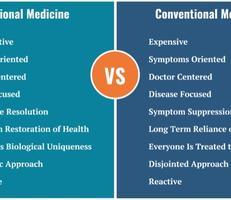
LYME DISEASE
The Practice of Health and Wellness
Internal Medicine & Functional Medicine Specialist located in Thomaston, CT
Have you been diagnosed with Fibromyalgia or told your symptoms are all in your head?
There is a good possibility you may have a tick-borne diease like Lyme disease. One tick can carry up to 14 different diseases including bacterial, viral, fungal, and parasitic. These diseases are difficult to diagnose and treat.
Dr. Pamela Cipriano, DNP, APRN, of The Practice of Health and Wellness in Thomaston, Connecticut, is well aware of the disease progression caused by a simple tick bite and how to correctly identify a long-term infection, how to manage the debilitating symptoms, and how to properly treat the disease process. Dr. Pamela Cipriano, DNP, APRN, has completed intensive training with Lyme disease experts and is a member of the International Lyme and Associated Disease Society (ILADS). She completed her preceptorship with Dr. Richard Horowitz, Lyme Specialist. If you think that you have Lyme disease or have symptoms like fatigue, joint problems, inflammation, and weakness that has not been given a diagnosis, contact The Practice of Health and Wellness for an appointment. Call or use the online tool to request an appointment. It does not matter where you live. We have patients throughout the USA as well as Internationally. We offer telemedicine to be able to help as many people as possible with this terribly debilitating disease!
Lyme Disease Q&A
What is Lyme disease?
Lyme disease is an illness that you catch from the bites of infected deer ticks. You’re at a greater risk of Lyme disease if you spend time in areas where deer ticks flourish, like heavily wooded areas or grassy plains and parks. When not treated early, Lyme disease can lead to debilitating symptoms and spread to major organs and body systems.
What are the symptoms of Lyme disease?
Lyme disease and many of the co-infections are extremely difficult to diagnose and treat. The symptoms can imitate those of other diseases. Many people never notice a tick or its bite. And the telltale “bulls-eye” rash associated with Lyme disease only shows up in 20-50% of affected people.
Symptoms associated with chronic Lyme disease include:
-
Muscle pain
-
Tingling, numbness, and/or weakness
-
Fatigue
-
Arthritis and joint problems
-
Memory problems
-
Headaches
-
Fevers
-
Heart problems
-
Depression and anxiety
-
Constipation
-
Bladder pain
-
Inflammation
-
Bell’s palsy (temporary muscle paralysis on one side of the face)
Lyme disease can also cause chills, fever, body aches, neck stiffness, headaches, and swollen lymph nodes soon after infection and chronically afterwards.
How is Lyme disease diagnosed?
Lyme disease often escapes diagnosis due to the nonspecific symptoms and because testing often comes back as a false negative. The current two-step testing practices bring inaccurate results in more than 50% of cases. This is due to a lack of actual testing for the Borrelia burgdorferi bacteria that causes Lyme disease.
Many health care providers have inadequate training and mistakenly tell their patients that they don’t have Lyme disease and that their symptoms are “all in their head.”
Dr. Pamela Cipriano, DNP, APRN, has completed intensive training with Lyme disease experts and is a member of the International Lyme and Associated Disease Society (ILADS). She completed her preceptorship with Dr. Richard Horowitz, Lyme Specialist.
Members of her family were affected by chronic Lyme disease, which spurred her to become educated in Lyme disease and associated tick-borne diseases, including those caused by Bartonella, Babesia, Ehrlichia, Anaplasma, Tularemia, Brucella, and Mycoplasma.
In order to correctly be diagnosed, patients undergo a thorough review of their symptoms, a comprehensive physical exam, and blood tests through a specialty laboratory located in California called Igenex. We also use Galaxy labs. Because Pamela has extensive training, she is skilled at looking for Lyme disease signs that other practitioners would miss.
How is Lyme disease treated?
Lyme disease treatment is customized to your personal case based on its stage and severity. You could benefit from treatments that include antibiotics, supplements, and amino acids. When Lyme disease affects a particular bodily system, treatment focuses on that area. Incorporating proper diet and IV vitamin C has been shown to improve the immune system and decrease the inflammation while improving the health of the connective tissue which is a major issue with tick-borne and vector-borne diseases.
Treating Lyme disease is complicated and requires an expert like Dr. Pamela Cipriano, DNP, APRN. Call The Practice of Health and Wellness for evaluation, diagnosis, and treatment or request your appointment online.








